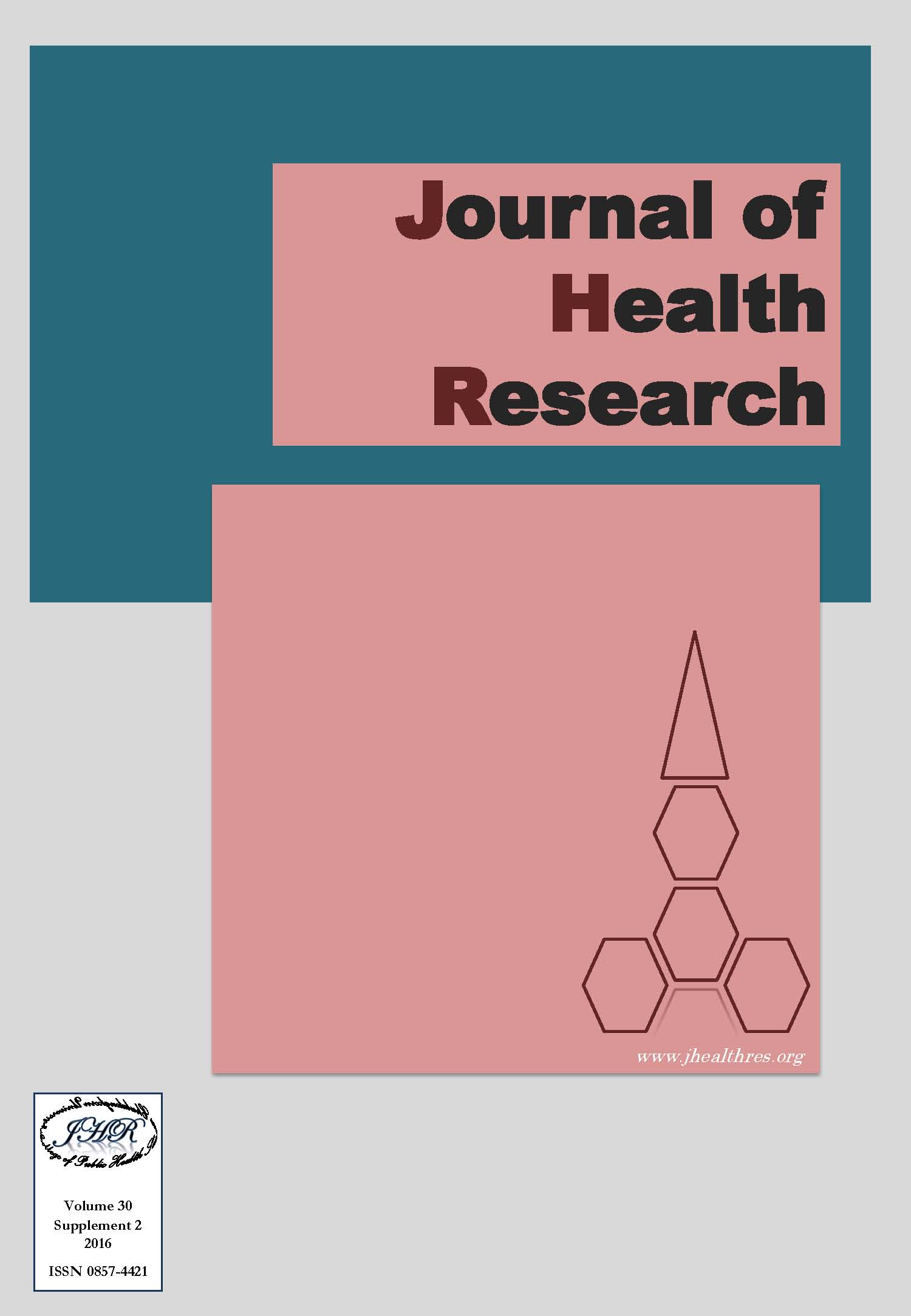Assessment of Knowledge and Perception of Adverse Health Effects Associated with Self-Prevention from Air Pollution in Traffic Policemen in Bangkok, Thailand
Keywords:
Knowledge, Perception, Self-prevention, Air pollution, Traffic policemen, ThailandAbstract
Background: As a result of expansion and development in Bangkok, traffic policemen have higher risks to expose air pollution. Air pollution results from several pollutants which mainly caused by road vehicles. This study aimed to examine the association between knowledge and perception of adverse health effects. In addition, self-prevention from air pollution of traffic policemen in Bangkok is also studied.
Methods: A cross-sectional study was carried out by random sampling and self-administrated questionnaires from 223 traffic policemen worked in interesting area as Jatujak, PomPrapSattruPhai, Din Daeng and Rat Burana district, Bangkok, Thailand. The data were analyzed by using descriptive statistics and analytical statistics in terms of the Chi-square test and Fisher Exact Test.
Results: The result indicated that the respondents were 100% male and 45.7% aged between 41-50 years, 44.4% in Bachelor’s degree and found that 72.2% of respondents had not received information, and 74.4 % had not been trained. Most of respondents had knowledge at moderate level 48.4 %. A minority of respondents had the perception of adverse health effects at poor level 2.7 % and had self-prevention behavior from air pollution at poor level 3.1 %. Furthermore, the knowledge was associated with socio-demographics characteristics in terms of education level, frequency of exercise, chronic disease, had got information about air pollution and health effect and had been trained on prevention of air pollution at p-value as 0.011, 0.001, 0.028, 0.011 and 0.005, respectively. Knowledge of respondents associated with perception of adverse health effect (p-value = 0.001) and also associated with self-prevention behavior from air pollution (p-value <0.001). Last, the perception of adverse health effects associated with self-prevention behavior from air pollution (p-value <0.05).
Conclusion: Government agencies and related organizations shall provide traffic policemen with proactive programs in terms of knowledge about air pollution prevention behavior and enhance health effect perception from air pollution in order to have more appropriate prevention behaviors.







